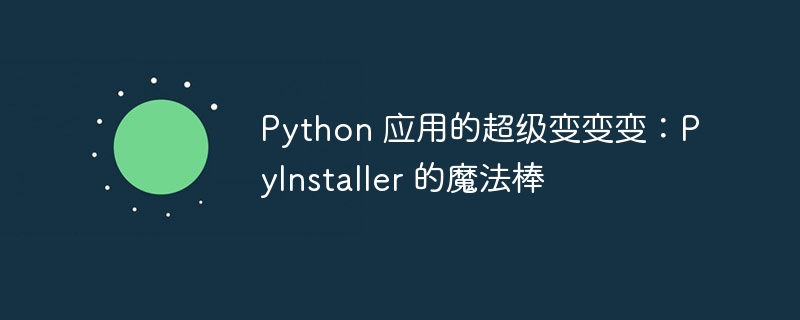

python is a powerful programming language that is widely used in various fields. However, when you need to deploy your Python application to other computers, you will face the problem that the script is not executable. To solve this problem, PyInstaller came into being. This is an excellent tool that converts Python scripts into standalone executable files, allowing your applications to run on any computer without the need to install a Python interpreter.
PyInstaller’s magical conversion
The working principle of PyInstaller is simple and efficient. It creates an executable file using Python code, required libraries, and all dependencies. The executable contains all the necessary components of the application, including a Python interpreter if needed. This way you don't need to worry about whether Python or a specific library is already installed on the target machine.
Install PyInstaller
Before using PyInstaller, you need to install it first. Run the following pip command in a command prompt or terminal:
# hello.py
print("Hello World!")Use the following command to generate an executable file:
pyinstaller --onefile hello.py
The generated hello.exe file can be run on any computer, even if Python is not installed.
in conclusion
PyInstaller is an indispensable tool for converting Python scripts into standalone and portable executables. It simplifies application deployment, improves security, and improves performance. By leveraging the power of PyInstaller, you can easily bring your Python applications to a wider audience.
The above is the detailed content of Super transformation of Python applications: PyInstaller's magic wand. For more information, please follow other related articles on the PHP Chinese website!




